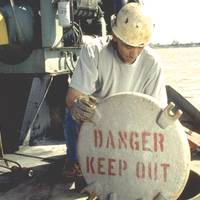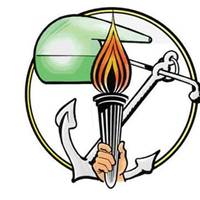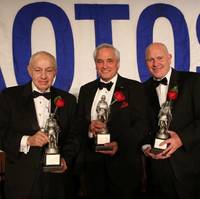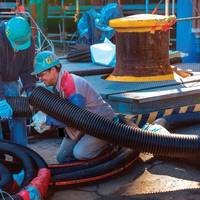NFPA Certificated Marine Chemists – A Century of Fire Protection and Life Safety

As the National Fire Protection Association (NFPA) Technical Committee on Gas Hazards votes on the First Draft of the next edition of NFPA 306, Standard for the Control of Gas Hazards on Vessels, the NFPA Certificated Marine Chemist Program will mark 100 years of fire protection and life safety on marine vessels, in shipyards, marine terminals and waterfront facilities.What started a century ago as an industry effort to prevent fires on vessels under repair has never been more important. According to a 2007 report of the U.S.
Preventing Maritime Vessel Explosions – The Role of the Marine Chemist

With advances in technology, increased regulatory requirements for training, and an industry that has been committed to improving working conditions, especially those associated with confined space entry and fire prevention, why are we still seeing maritime related fires and explosions that often include serious injury or loss of life? HistoryFollowing the First World War, as cargo vessels, particularly tank ships, were being converted to carry larger cargos, the incident rate of fires and explosions during shipbuilding, repair, and conversion began to rise.
Cotton, Cox, Harris Receive '14 AOTOS Awards

The United Seamen's Service (USS) 2014 Admiral of the Ocean Sea Awards (AOTOS) were presented to Stephen Cotton, General Secretary of the International Transport Workers' Federation (ITF); Joseph J. Cox, President/CEO, Chamber of Shipping of America; and Frederick J. Harris, President of General Dynamics NASSCO and Bath Iron Works, an American shipbuilder. The maritime industry's most prestigious awards were presented at a gala industry dinner and dance held at the Sheraton New York Times Square Hotel, New York City, on November 7, 2014.
Monitored Confined-Space Entry

Protecting Workers, and Ensuring Safe Sailing for the Maritime Industry. The cable-laying vessel GS Global Sentinel was undergoing repair work. Shipyard workers and members of the ship’s crew found a mysteriously high hydrogen sulfide reading in a confined space on board that created a toxic environment. They could not understand why. What caused this potentially lethal scenario? After investigation and safe entry into the tank, crewmembers of the vessel and shipyard workers discovered…
Gas Fueled Engines for Coastal Ferries
The first ship sets of Bergen gas engine powered generator sets have now been delivered for ferries fuelled by liquefied natural gas (LNG). The KVGS-12G4 gensets form part of the order for power plant for a series of five double ended ferries which will provide vital links in the main road system on the west coast of Norway. The choice of LNG as fuel for these ferries was driven by two main considerations: reducing exhaust emissions of CO2 and NOx and creating a base load demand for LNG around which a broader local land gas distribution network can be built up. Five vessels are under construction. Three of them will operate on the Halhjem/Sandvikvåg route connection south of Bergen and these will be powered for a 21 knot service speed.









